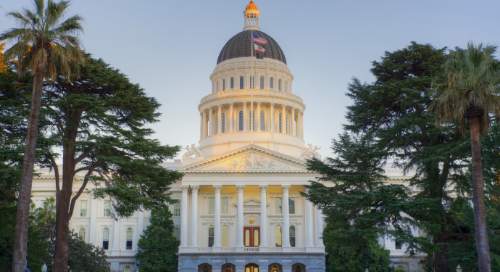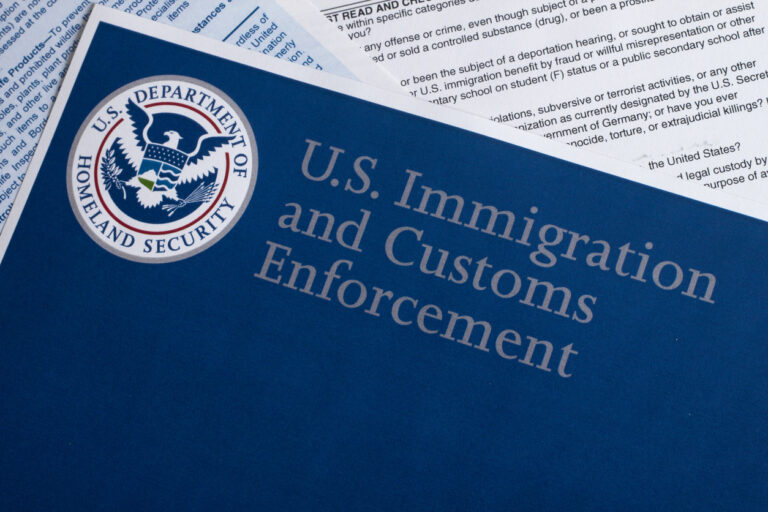This resource is provided by ACSA Partner4Purpose Lozano Smith.
In Roe v. Critchfield (9th Cir. Mar. 20, 2025), Case No. 23-2807, __ F.4th __, the United States Court of Appeals for the Ninth Circuit held that pro-LGBTQ+ Plaintiffs’ challenge to Idaho Senate Bill 1100 (SB 1100), regarding access to bathrooms and like facilities based upon biological sex, was unlikely to succeed on the merits. As a result, Idaho public schools generally must require K-12 students to use the restrooms and facilities which correspond with their biological sex. Note, California law continues to entitle students to access facilities consistent with their gender identity, pursuant to Education Code section 221.5 subdivision (f).
Background on SB 1100
In 2023, the Idaho State Legislature passed SB 1100, which requires all multi-use public school restrooms or changing facilities to be segregated based on “biological sex” and prohibits anyone from entering such facilities unless they are “a member of that [biological] sex.” SB 1100 sets forth functionally equivalent requirements for “public school setting[s]” outside of the traditional school setting. The law also requires Idaho public schools to provide an accommodation to any student who is “unwilling or unable to use a multi-occupancy restroom or changing facility designated for the person’s sex,” e.g., an accommodation to allow a student to use a single-occupancy restroom. The Idaho Legislature’s stated interest in passing SB 1100 was “the privacy and safety of all students” in “restrooms and changing facilities where such person[s] might be in a partial or full state of undress in the presence of others.”
Roe v. Critchfield
Plaintiffs Rebecca Roe, a twelve-year-old transgender student of Idaho public schools and the Sexuality and Gender Alliance, a student organization representing LGBTQ+ students at Boise High School (together, Plaintiffs), challenged SB 1100 as facially unconstitutional on the basis that it violates the Equal Protection Clause, Title IX, and the Fourteenth Amendment. The Plaintiffs also filed for a preliminary injunction, which the United States District Court denied.
The Ninth Circuit’s review was limited to whether the district court erred in denying the injunction, either by applying “an erroneous legal standard” or by making “clearly erroneous findings of fact.” In order to prevail on a motion for preliminary injunction, a plaintiff must show: (1) they are likely to succeed on the merits of their substantive claims, (2) they are likely to suffer irreparable harm in the absence of relief, (3) the balance of equities tips in their favor, and (4) an injunction is in the public interest.
Regarding the Plaintiffs’ constitutional Equal Protection Clause claim, the court ruled that Plaintiffs were unlikely to succeed on the merits because the law should survive intermediate scrutiny. Specifically, the Ninth Circuit noted that its own precedent recognized “protecting students’ bodily privacy” as an important government interest, and that SB 1100’s provisions are substantially related to that interest.
Regarding the Plaintiffs’ Title IX claim, the court declined to answer whether “sex” includes “gender” and thus whether SB 1100 constitutes sex discrimination under Title IX. Instead, the court relied on the Constitution’s Spending Clause “clear notice rule,” holding that the Plaintiffs failed to show that Idaho “had adequate notice, when [it] accepted federal funding, that Title IX prohibits the exclusion of transgender students from restrooms, locker rooms, shower facilities, [etc.].”
Regarding Plaintiffs’ informational privacy claim, the court found that Plaintiffs were unlikely to succeed on the merits for two main reasons. First, the court noted that Ninth Circuit precedent had not yet addressed whether a student’s transgender status triggers informational privacy rights. Second, even assuming a student’s status as transgender were entitled to privacy protections, the court noted that SB 1100 allows for “any student” for “any reason” to access a reasonable accommodation. Therefore, the court reasoned that a transgender student who opts to use a single-occupancy facility will not necessarily be exposed as transgender.
Takeaways
The Ninth Circuit decision is limited to whether the Plaintiffs in Roe v. Critchfield were likely to succeed on the merits of their causes of action, such to permit an injunction. The Ninth Circuit agreed with the denial of the requested injunction, though it did not actually reach a determination on the merits of a challenge to SB 1100.
If you have any questions about Roe v. Critchfield, its impacts, or any of the issues discussed in this Client News Brief, please contact any attorney at one of Lozano Smith’s eight offices located statewide.

























